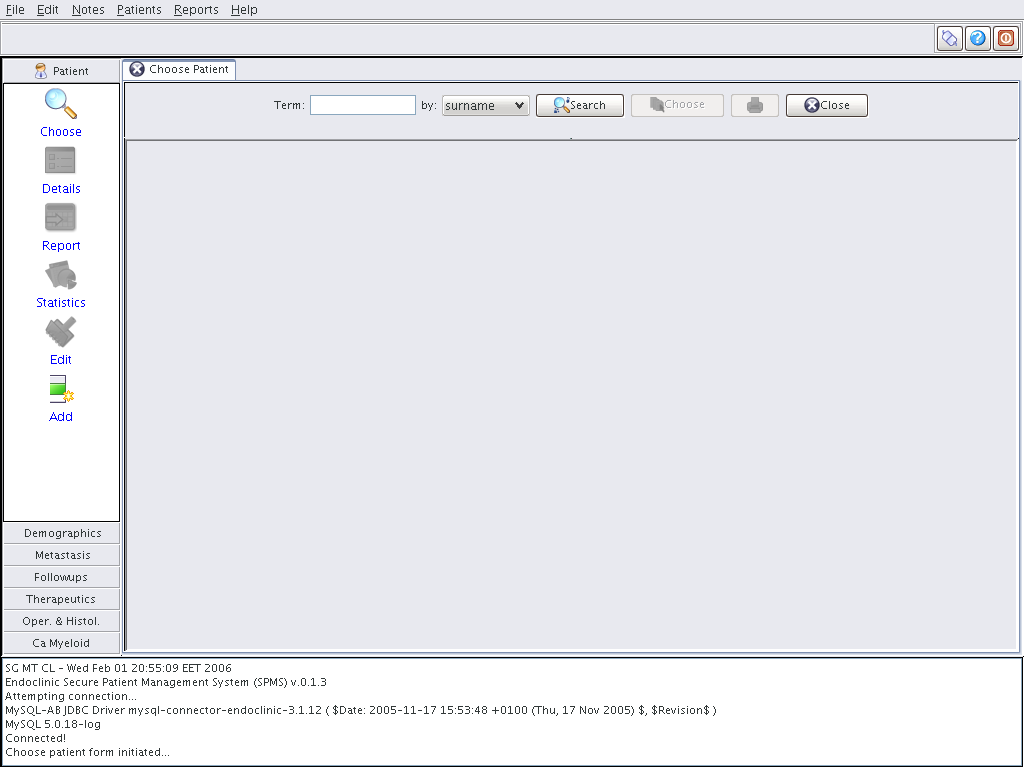Endoclinic SPMS lightweight Cross-platform open source EMR software for Endocrinology clinics
EndoClinic SPMS is a lightweight open source EMR built for Endocrinology clinics to manage records for patients with Thyreoid/Myeloid cancer with custom charts generation.
SPSM stands for Secure Patient Management System, which comes with secure user-management system with secure database connection all packed within simple easy-to-use user-interface, featuring simple electronic records management, followup, and medications.
It backs patient records management with specific details to certain endocrine diseases (Thyreoid/ Myeloid cancer) and it includes: demographics, metastasis, followups, medication , therapies(8 types), surgical operations and histologic tests.
Currently, EndoClinic SPMS supports 2 languages English and Greek.

Technical note:
EndoClinic SPMS was built using Java using Java Swing and MySQL Database for the back-end, which means it works on Linux, Windows and Mac OSX. The download size for is about 17.3 MB.
The app is easy to install and straightforward to use, though you may find trouble in MySQL connection on localhost ( development environment) on MacOSX, but it works fine on Windows and Linux. It has Windows executable file .exe, but for MacOSX and Linux, there is .jar file which loads quickly even on old machines. It supports SSL for MySQL connection, However sometimes database connection does not work.
The project was first released in 2006; It received updated till 2008, but there is no further update ever since.
Unfortunately, There is no enough documentation nor a website for the project except the SourceForge’s page, they updated last time at 2013, Though the project went through several version upgrades over the years from version 0.2.0 by 2006 to version 0.3.0 by 2008. There is 4 members involved in the project but no enough data about their roles.
Though the application last updated years ago and there was no enough statistics about its usage in the real world, It’s a fine example with direct specific use-case of costumed charting, clinical flow and treatment of a patient with specific disease. Hopefully, it will give insights about disease-driven electronic medical records.
- Endoclinic SPMS's website
- 10+ Open source HIS ( Hospital Information Systems )
- 20+ Open source EMR/ EHR
- 10+ PHP-based open source EMR/EHR and HIS

